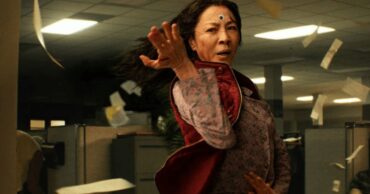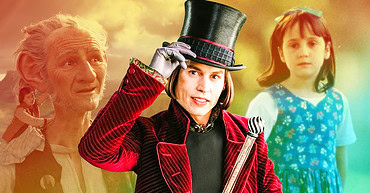
To date, there have been over 50 video game adaptations helmed by former Oscar and Golden Raspberry winners. None of the video game adaptations have ever received an Oscar nomination for Best Picture, but the special category is no stranger to Golden Raspberry nominations and awards, especially Uwe Boll. On the surface, video games seems like the easiest source material to adapt. Many of the adaptations come from games that generally have great stories and characters behind them, yet Hollywood has truly failed to produce one classic video game movie. So, why is it so hard to adapt the popular medium to movie format? Let’s dive deeper into the reasoning behind this notion.
The Source Material Is Rarely Shown The Proper Respect
One of the biggest reasons that video game movies have a hard translation to the movie format is due to the different mediums. Yes, both provide similar sources of entertainment in terms of storytelling: With the emphasis on a cohesive narrative, strong characters, and a lush and colorful world being important in both forms of media. Hopefully, video games tended to be longer, often having a window of ten hours or longer to tell their story. Sometimes the playtime for a game can be shorter, but it’s extremely rare that video games have a two or three playtime window. That’s why it’s understandable why filmmakers are forced to make some changes so the story can properly translate to fit the current movie format as no one is going to watch a ten-hour movie. However, some filmmakers tend to deviate so far from the source material that it’s clear that they don’t truly understand the work that inspired the film, or in some cases care.
And to be clear, none of these changes has resulted in a masterpiece like The Shining, which mostly veers from the Stephen King novel. Now, is it a must that video game adaptations follow the source material closely? No. As long as the material perfectly embodies the colorful characters and compelling worlds, then a filmmaker changing up the story isn’t much of an issue. On the other hand, Paul W.S. Anderson’s Resident Evil is a pale intimation of what the video games actually are. Resident Evil is a survival horror game that scared the crap out of most gamers and popularized the genre as a whole. The movie is a shoot em’ up action fest that doesn’t understand the purpose of the source material and only has characters from the world based on name. Alice doesn’t even exist in the video games! The same can be said about any of Uwe Boll’s video game features. The director seemed to take cliff notes of what the games are and made several nonsensical spins to the source material. The reason that Sonic the Hedgehog works so well is due to the fact that the filmmakers understand the characters and overall works. The 2021 Mortal Kombat is far from flawless, but most of the film works because of the same reason. Even Stanley Kubrick understood the characters and world of Stephen King’s classic, despite mostly changing the story.
The Source Material Is Way Too Faithful
As confusing as this may sound, there’s a way to be too faithful in the source material and lose sight of a cohesive story. This is the main problem of Resident Evil: Welcome to Raccoon City. While the feature is mostly coded in what made the first two Resident Evil games popular, the message and themes were lost in translation. We don’t get a chance to truly dive into the characters and story because it often feels that that the director was more concerned with fan service then taking his time with the overall story and getting to the root of what Resident Evil is. Assassins Creed and Prince of Persia also deal with this same issue. They’re mostly faithful to the video games, but both stories are a muddled mess that doesn’t properly translate from the source material. The first Silent Hill actually does a solid job with the minor hiccup being the Sean Bean side plot. The story naturally follows because the narrative is simple and straight forward. Sure, there’s a couple of plot holes here and there, but every creature, or story development feels earned. Tomb Raider and some extent, Warcraft fall into this category too. Again, none of these films are perfect, but they wisely keep the story simple as possible and added the only elements that advanced the plot and story.
 Follow Us
Follow Us





